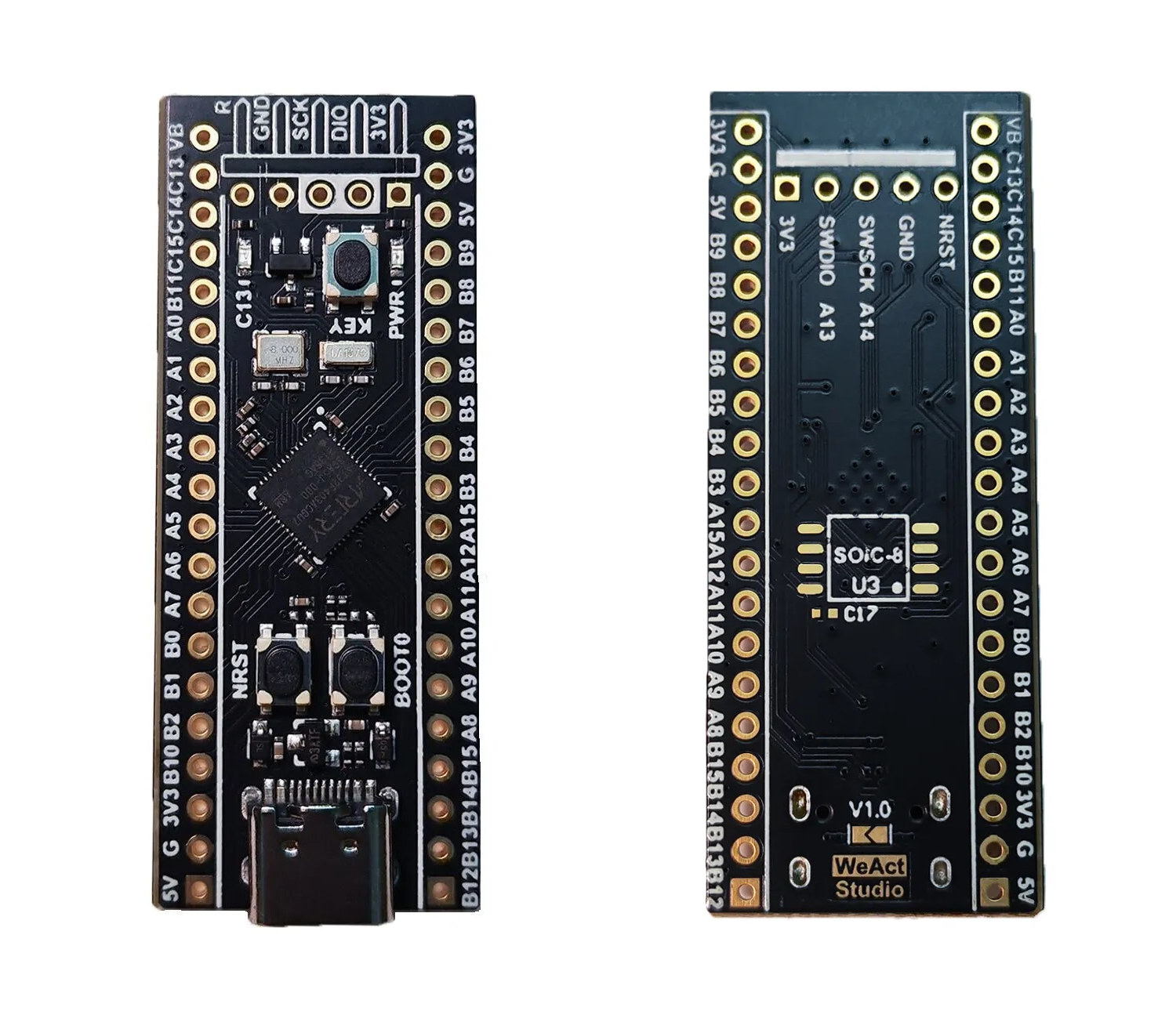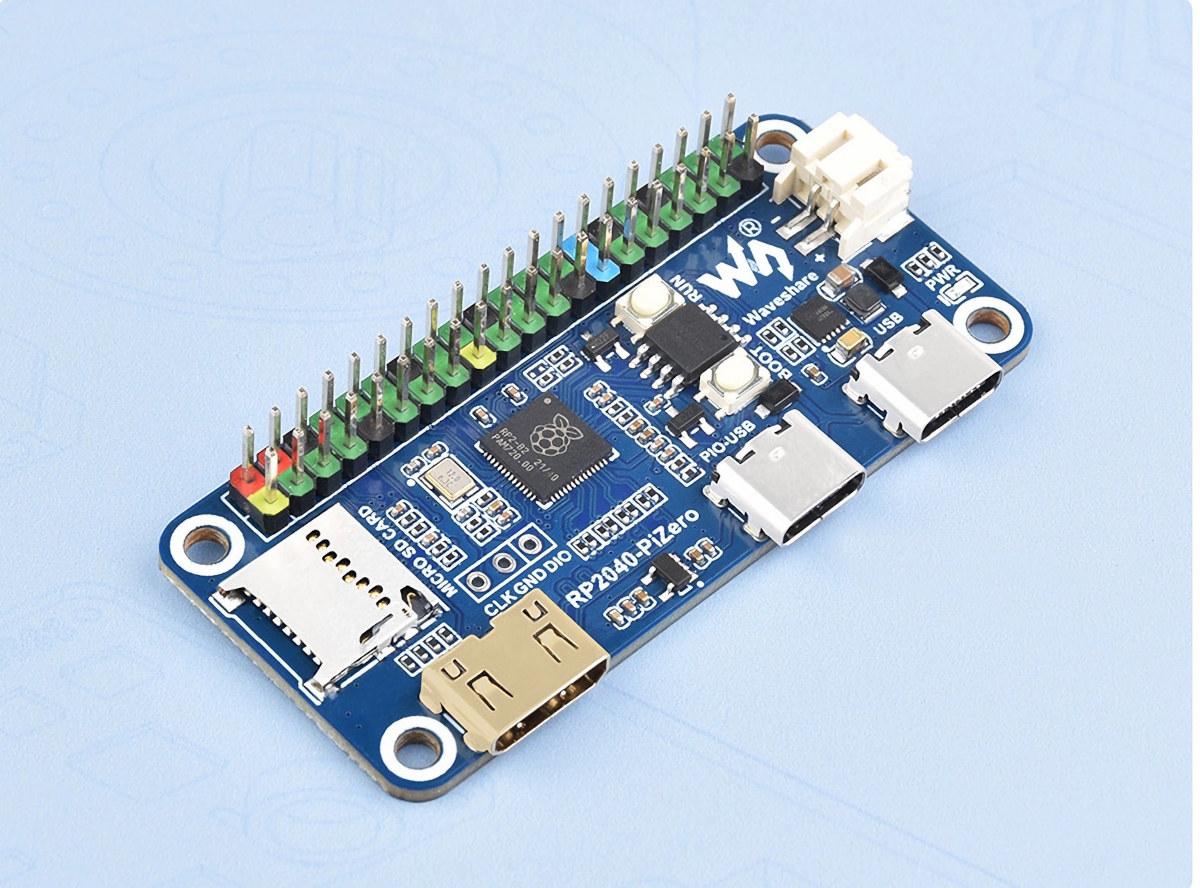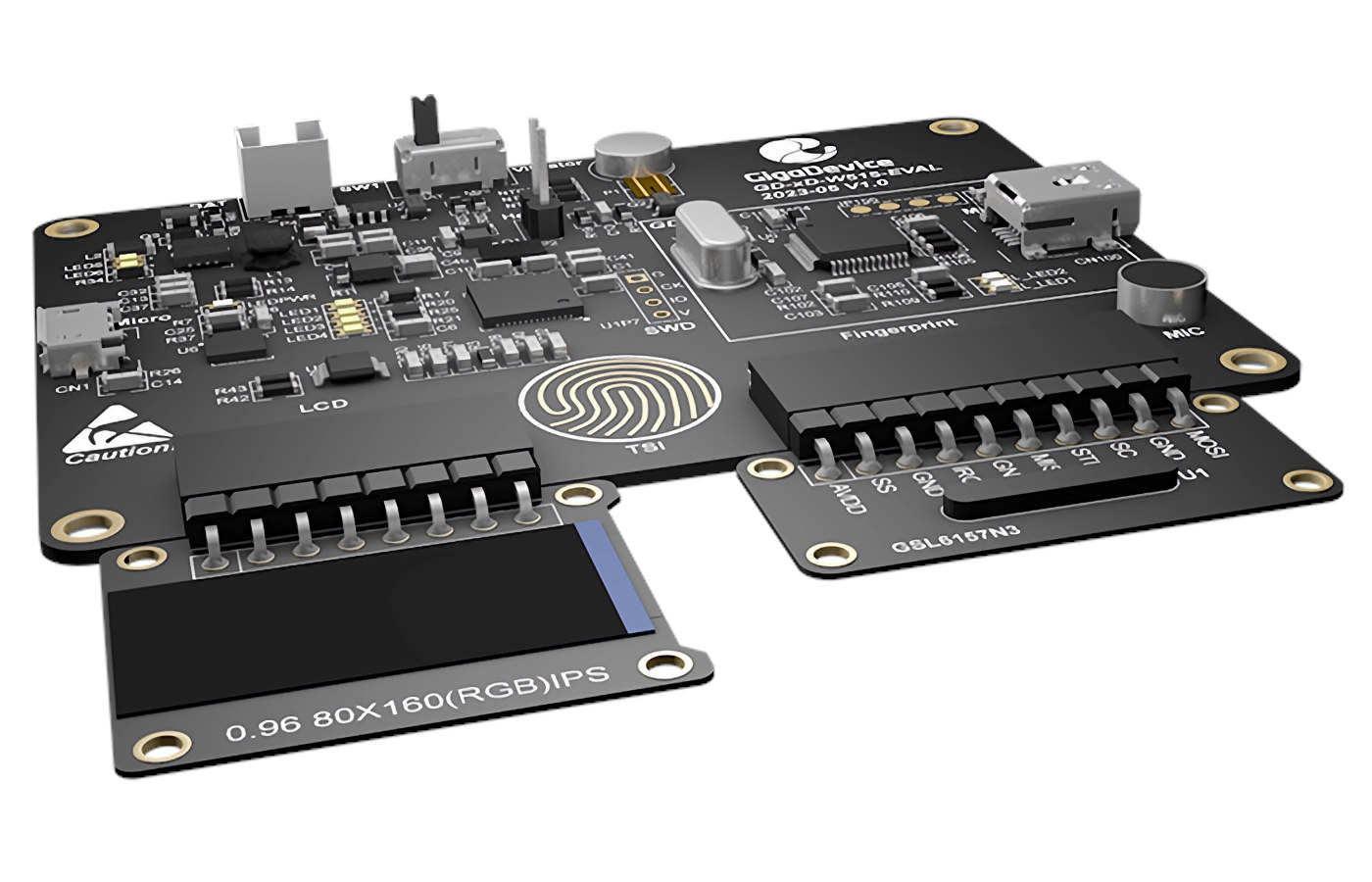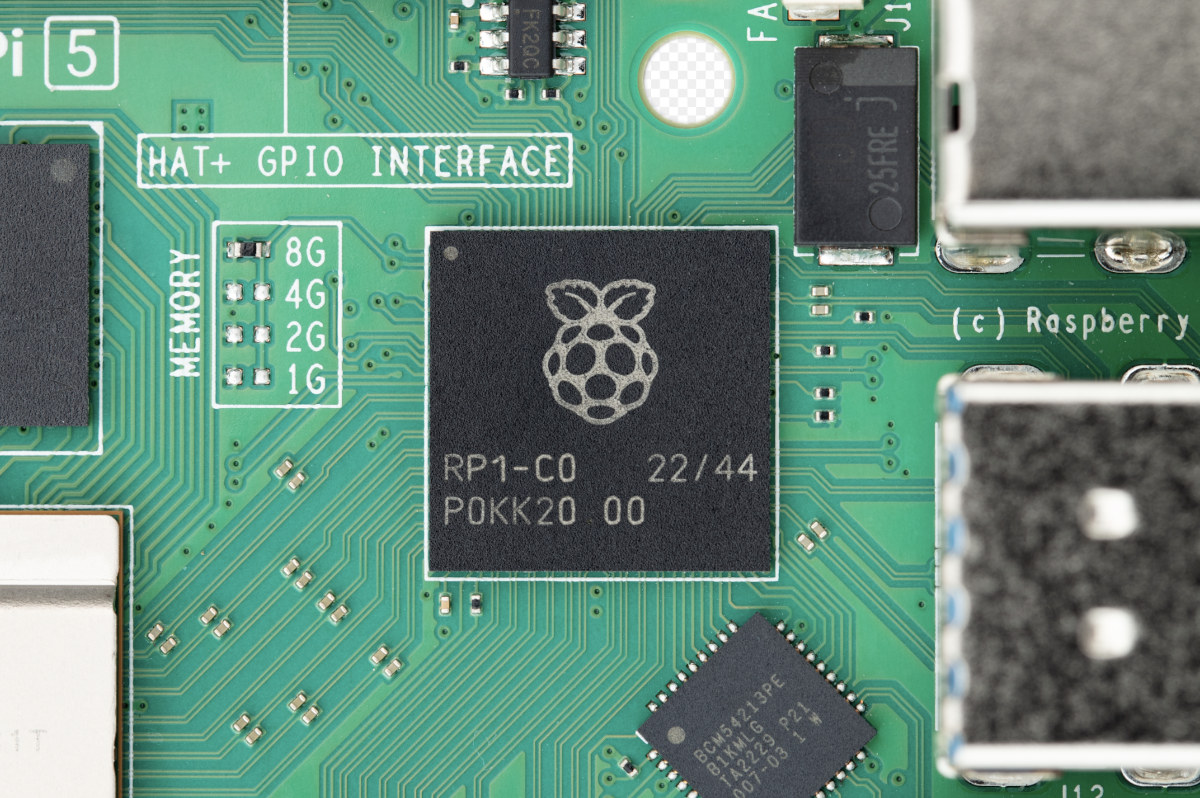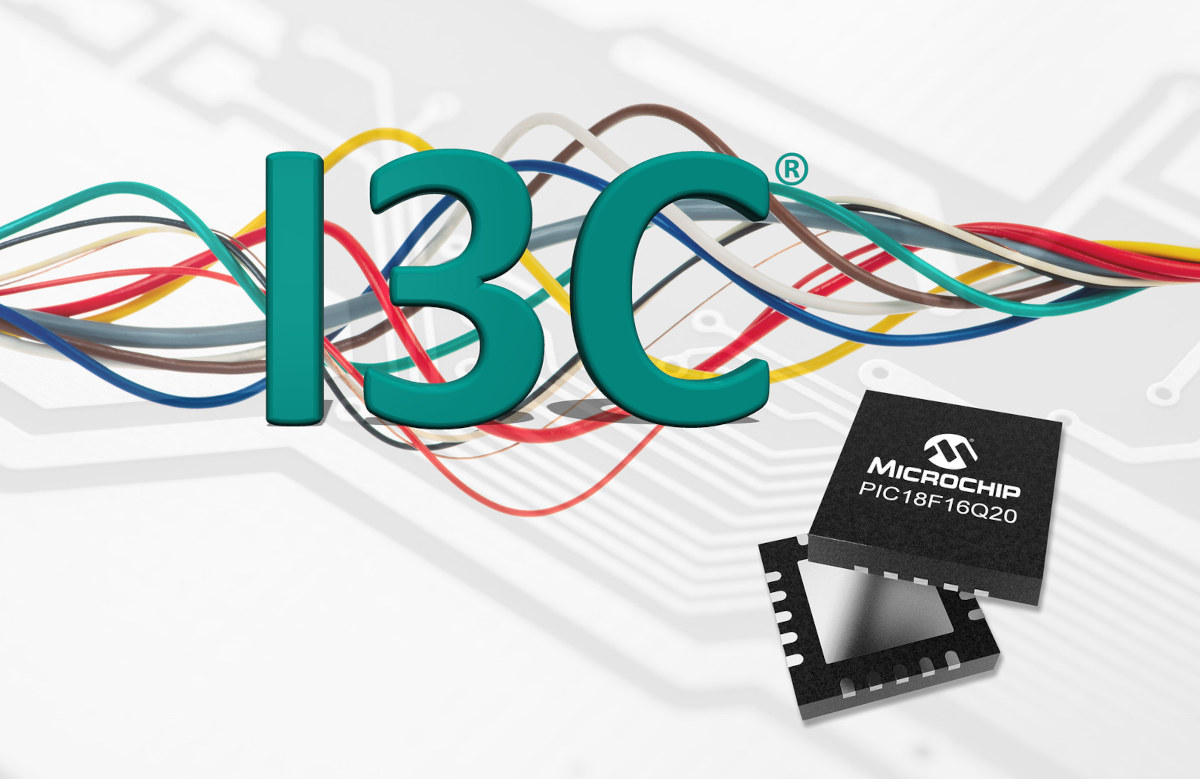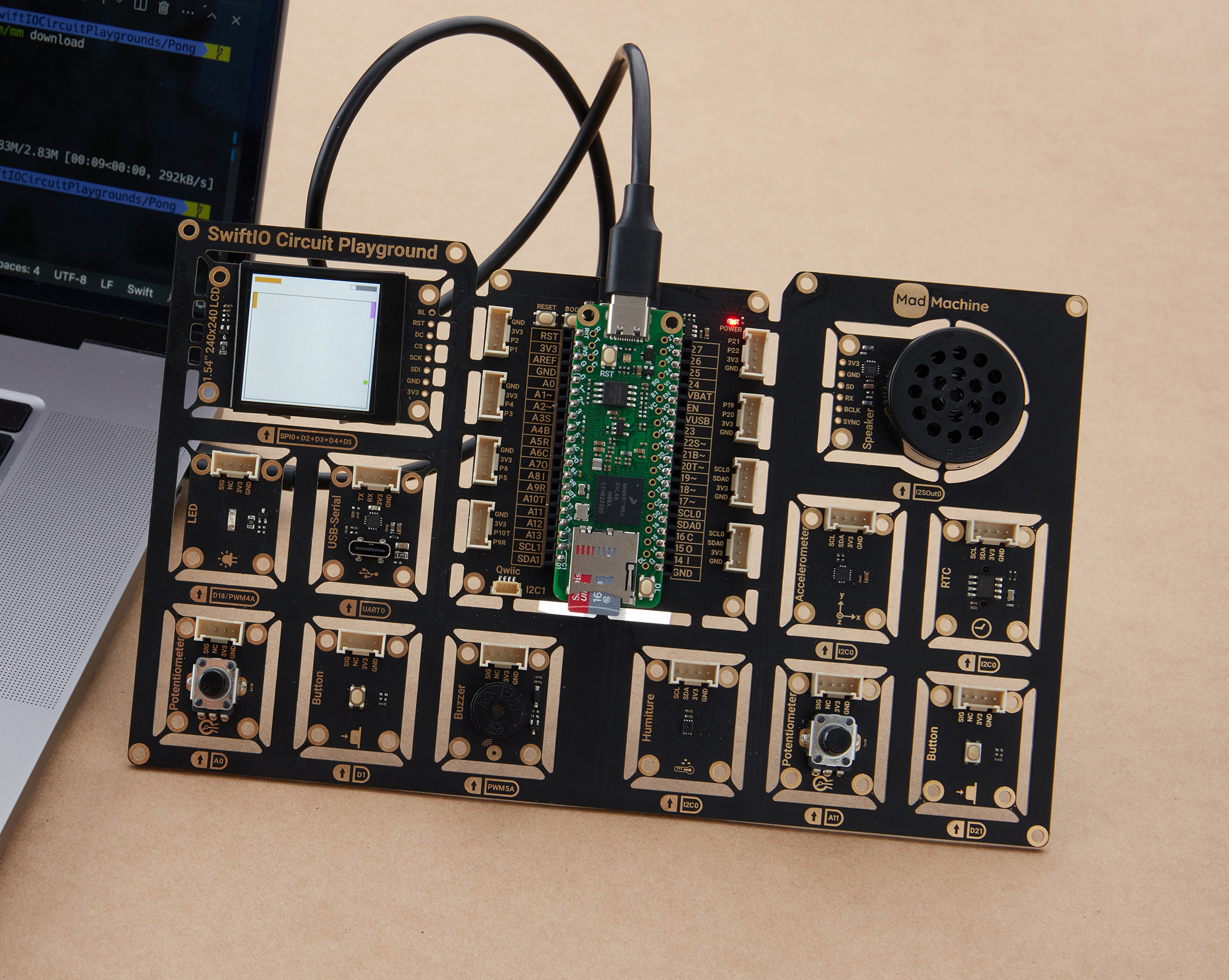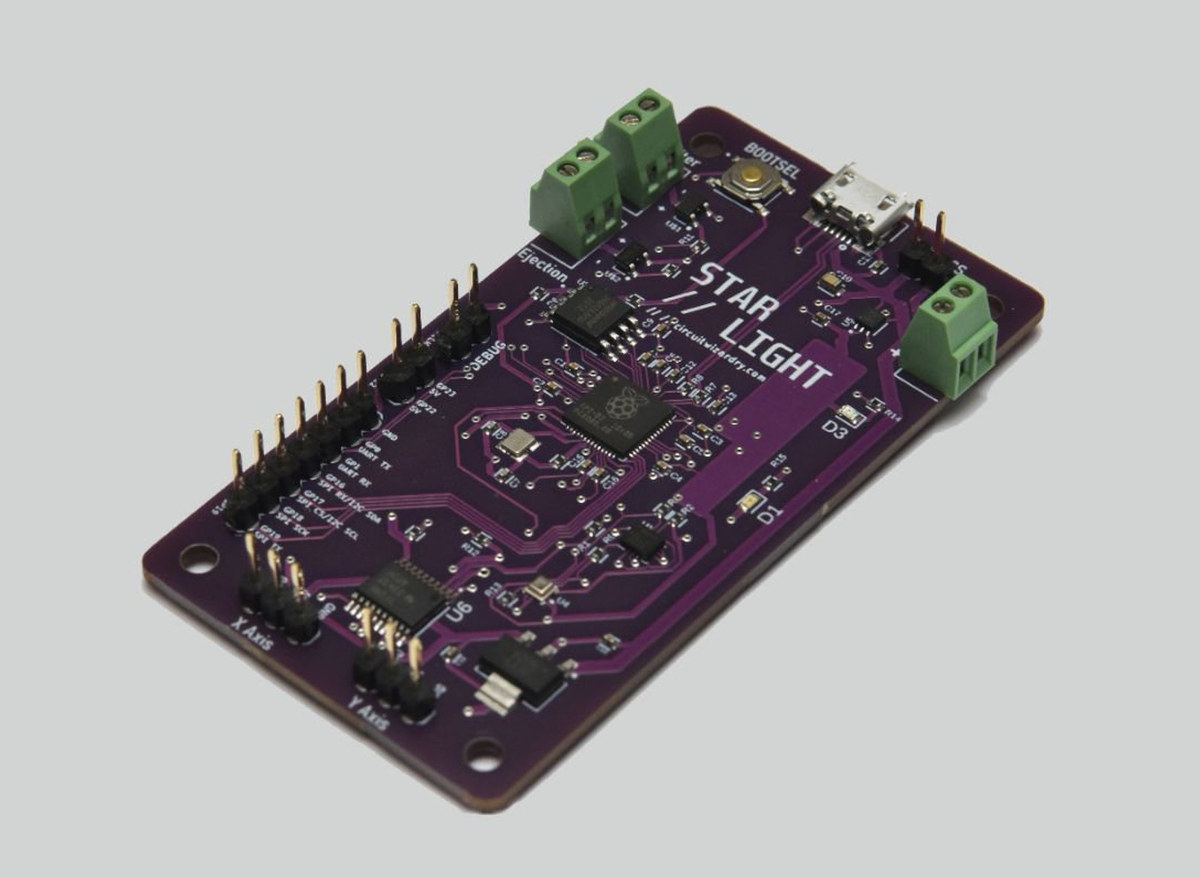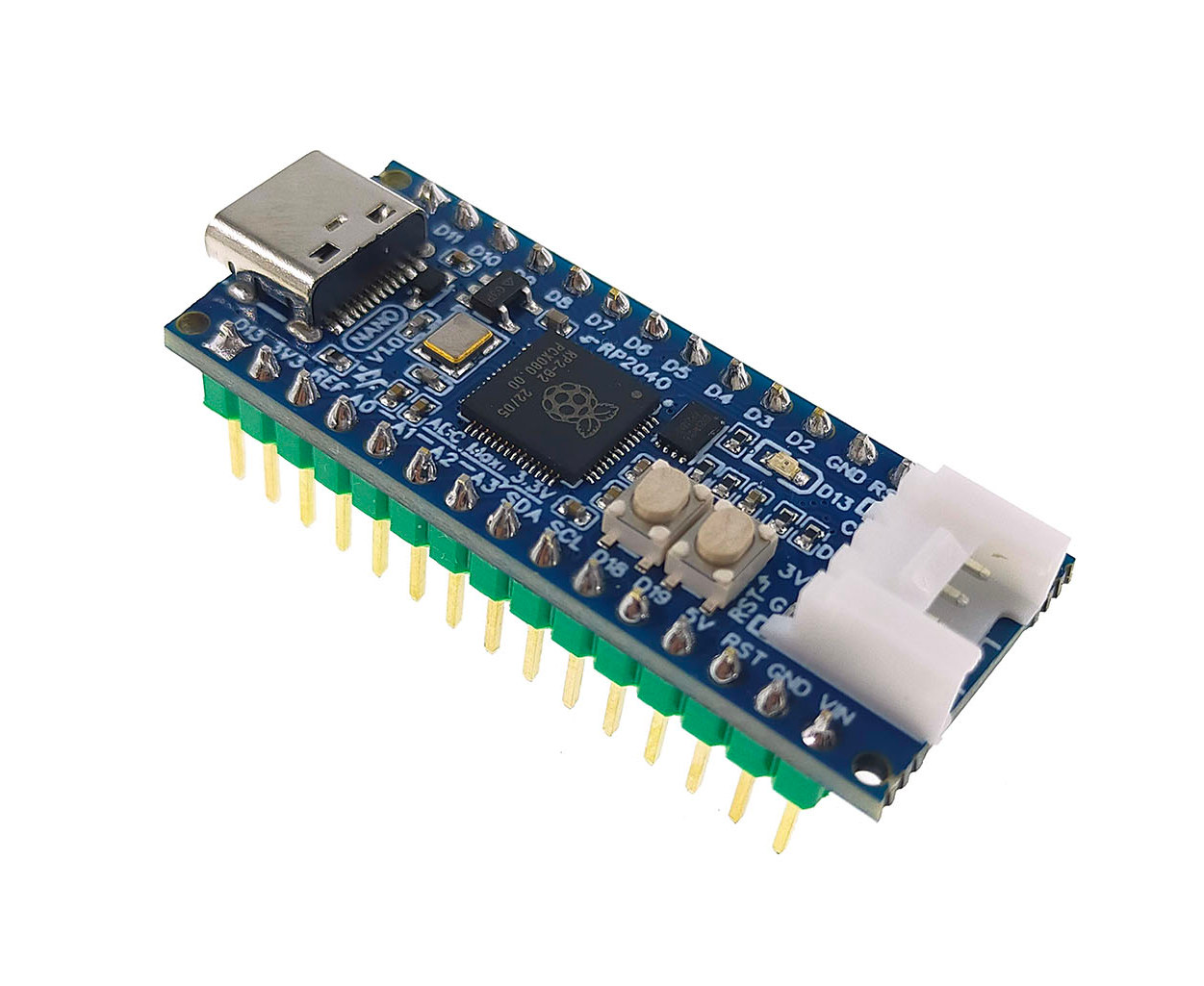The “Black Pill” board with an STM32F4 Cortex-M4F MCU is already cheap, but I’ve just come across a clone going for just 49 cents plus shipping (34 cents to Thailand) based on a 240 MHz AT32 (or AT32F4) Cortex-M4F microcontroller with Arduino support. [Edit: the price looks like a lottery and everybody seems to get a different price, and not related to VAT. See comments section] Other features are pretty much the same with two 20-pin headers for GPIOs, an SWD header, a USB Type-C port for power and programming, and a few buttons. WeAct “Black Pill” board specifications: Microcontroller – Artery Technology AT32F403ACGU7 Cortex-M4F MCU @ 240MHz with 96 + 128KB RAM, 256KB zero wait-state flash, 768KB non-zero wait-state flash; note: RAM and flash size are somehow configurable by the user, and the numbers listed here are the maximum capacities. Storage – Footprint for SPI flash USB – 1x […]
Waveshare RP2040-PiZero – A Raspberry Pi RP2040 board with Raspberry Pi Zero form factor
Waveshare RP2040-PiZero board is a Raspberry Pi Zero lookalike that features a Raspberry Pi RP2040 microcontroller instead of a Linux-capable application processor. But RP2040 board comes with the same layout as the Raspberry Pi Zero and similar ports including two USB Type-C ports, a mini HDMI/DVI connector, a microSD card slot, and a 40-pin GPIO header, but also adds support for LiPo batteries with a 2-pin connector and a charging circuit. RP2040-PiZero specifications: MCU – Raspberry Pi RP2040 dual-core Cortex M0+ microcontroller @ 133 MHz with 264 kB of embedded SRAM Storage – 16MB SPI flash, microSD card slot Video – Mini HDMI port that can output DVI signals USB – 1x USB Type-C port for data using PIO-USB host/device implementation Expansion – 40-pin color-coded header with 2x SPI, 2x I2C, 2x UART, 4x 12-bit ADC, 16x PWM, 8x Programmable I/O (PIO) state machines for custom peripheral support Misc – […]
GigaDevice GD-xD-W515-EVAL board features GD32W515 Cortex-M33 MCU, a fingerprint scanner, and an LCD module
GigaDevice GD-xD-W515-EVAL is a new “all-in-one” Cortex-M33 evaluation kit comprised of a GD32W515 mainboard, a fingerprint board, and an LCD board powered by either a battery or the Mini-USB interface of the GD-Link programmer. The devkit is mainly used to evaluate various chips from the company, namely the 180 MHz GD32W515PIQ6 Cortex-M33 microcontroller, the GD25Q128E SPI NOR flash, the GSL6157 capacitive fingerprint Sensor, the GD30BC2416 battery management IC, and the GD30LD1002 power management chip. GigaDevice GD-xD-W515-EVAL board specifications: MCU – Gigadevice GD32W515PIQ6 Core – Arm Cortex-M33 microcontroller clocked at up to 180 MHz with Arm TrustZone support Memory – 448KB SRAM Storage – 2048KB flash Wireless – 2.4 GHz WiFi 4 (802.11b/g/n), but somehow not used in the development board… I/Os – Up to 43x GPIOs, 3x USART, 2x I2C, 2x SPI, USB 2.0 FS, I2S, etc… Package – QFN56 Storage – 128Mbit SPI NOR Flash (GD25Q128E) Display – 0.96-inch […]
Raspberry Pi releases RP1 peripheral controller datasheet and block diagram
The Raspberry Pi 5 was recently introduced with the Broadcom BCM2712 CPU and the RP1 chip handling I/Os designed in-house by the Raspberry Pi just like they did for the RP2 (RP2040) microcontroller, and we now have more details about the Raspberry Pi RP1 including a (draft) datasheet and a block diagram. The RP2040 came out before the RP1 peripheral controller as the design for the latter started 7 years ago with a total R&D budget to develop the Raspberry Pi 5 of around 25 million dollars. While at launch, we knew the RP1 handled some peripherals, doubled USB bandwidth with two separate USB 3.0 hosts, and embedded higher speed MIPI interfaces, it was unclear whether some of the other connections came from the BCM2712 or RP1 chips. But we now do know with the release of the datasheet. Raspberry Pi RP1 key features and specifications: MCU – Dual-arm Cortex-M3 […]
Microchip PIC18-Q20 low-pin count MCU comes with up to two I3C interfaces
Microchip PIC18-Q20 is a new family of microcontrollers (MCUs) with a low-pin count (14 and 20-pin packages) that integrates up to two I3C interfaces as well as multi-voltage I/O (MVIO) interfaces. MIPI I3C was first teased in 2014, then officially announced in 2017, and the first MIPI I3C specification was released the following year, as a backward compatible update to I2C with lower power consumption, and higher bitrate allowing it to compete against SPI. We’ve seen it used in a few application processors and microcontrollers, but it’s the first time I3C can be found in a lower-cost, low-pin count microcontroller. Microchip PIC18-Q20 specifications: Core – PIC18 8-bit RISC microcontroller core @ 64 MHz Memory – 1KB to 4KB RAM Storage – 16KB to 64KB with Memory Access Partition (MAP) support, 256B EEPROM Peripherals Up to 2x I3C device interfaces Adhere to MIPI I3C Basic Specification 1.0 Support Target Reset Action […]
SwiftIO Circuit Playground relies on Apple Swift programming for IoT projects (Crowdfunding)
A few years ago, Mad Machine introduced the SwiftIO board powered by an NXP i.MX RT1052 Arm Cortex-M7 crossover processor and programmable with Apple Swift programming language. The company has now launched a smaller version of the board named the SwiftIO Micro along with the SwiftIO Circuit Playground baseboard with plenty of modules to play with the SwiftIO Micro’s GPIO, and that reminds me of the Arduino Sensor Kit Base but with even more modules. SwiftIO Micro specifications: SoC – NXP i.MX RT1052 Arm Cortex-M7 crossover processor @ 600MHz System Memory – 32 MB SRAM Storage – 16MB flash, microSD card slot USB – 1x USB-C connector for power and programming Expansion – 3x 20-pin headers with up to 44 GPIOs, analog inputs, PWM, UART, SPI, I2C, I2S, CAN Bus, etc… See the pinout diagram below for details Misc – RGB LED, download and reset buttons Power Supply – 5V […]
STARLIGHT – A Raspberry Pi RP2040 board for rockets
Circuit Wizardry’s STARLIGHT is a rocket control board based on Raspberry Pi RP2040 microcontroller and designed for small 75mm model rockets. The board features rocket control-specific I/Os such as Igniter and Ejection pins each connected to a MOSFET, two headers for 5V servos, plus some sensors and 3.3V or 5V GPIOs for expansion. STARLIGHT specifications: Microcontroller – Raspberry Pi RP2040 dual-core Arm Cortex-M0+ MCU @ 133 MHz with 264KB SRAM Storage – 16MB flash for firmware and flight data USB – 1x Micro USB port for programming Rocket control Igniter via 2-pin terminal block and AO3400 MOSFET (pulse current up to 30A) used with ignition systems to automatically light your engine. Ejection via 2-pin terminal and AO3400 MOSFET Servo control 2x 3-pin servo outputs for optional thrust loop vector control interface (X Axis and Y axis on board) Level shifter to allow the use of 5V servos with the 3.3V […]
RP2 Nano is a $6.6 Raspberry Pi RP2040 board with Arduino Nano form factor
ArtronShop RP2 Nano board features the Raspberry Pi RP2040 microcontroller in the Arduino Nano form factor in a way that’s much cheaper than the official Arduino Nano RP2040 Connect board. That’s possible because Thailand-based AtronShop did not include all the bells and whistles such as WiFi and Bluetooth connectivity, sensors, and used a smaller flash. So the RP2 Nano basically offers the same I/Os and features as the Arduino Nano, but the Microchip ATmega328 8-bit AVR microcontroller gives place to the more powerful Raspberry Pi RP2040 dual-core Cortex-M0+ MCU plus 2MB flash, and the board also adds an extra Grove connector for expansion. RP2 Nano specifications: MCU – Raspberry Pi RP2040 dual-core Cortex M0+ microcontroller @ 133 MHz with 264 kB of embedded SRAM Storage – 2MB SPI flash USB – 1x USB Type-C OTG port for power, data, and programming Expansion Arduino Nano headers (2x 15-pin headers) Up to […]


